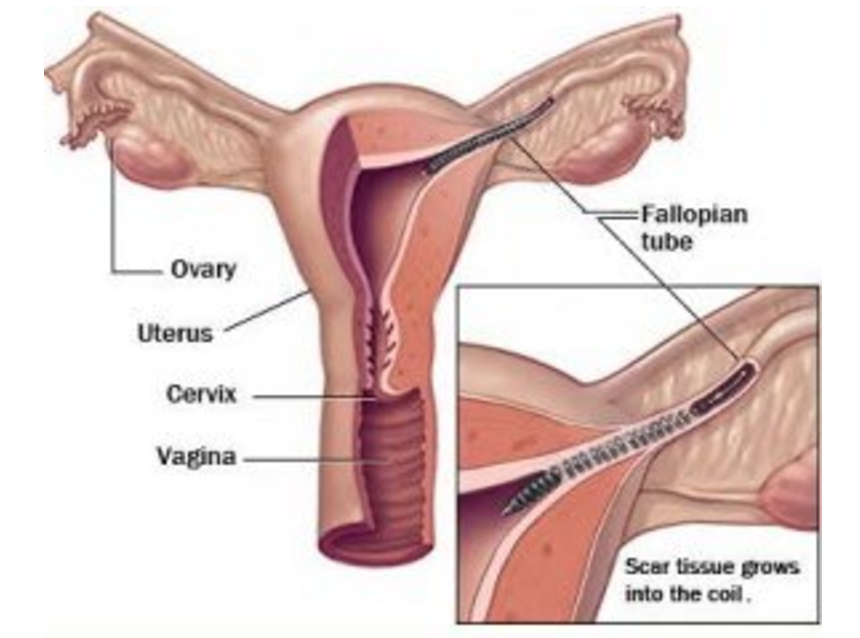
Permanent birth control
Permanent birth control (sterilization) has the highest reliability among all the methods of protection from unwanted pregnancy. It is called permanent because of the impossibility of recovering fertility. Therefore, before deciding positively on sterilization, all patients should weigh the pros and cons of this birth control method.
If a woman does not want to get stressed on a menstruation delay or missed birth control pills, then sterilization can be a good solution for pregnancy prevention.
It should be noted that there are three types of permanent birth control methods in modern medicine:
- Vasectomy
- Tubectomy
- Transcervical sterilization
Vasectomy (male sterilization) is a surgical procedure, which includes making an incision or puncture of vas deferens in men. The mechanism of this kind of permanent contraception methodology is that the spermatozoon doesn’t get into the bodily fluid from the testicles because of the violation of the vas deferens integrity.
What happens to the sperm after a vasectomy?
After a vasectomy, the sperm continue to form, but since they can not be excreted from the body, they are absorbed, as normal cells.
Before going through a vasectomy, men should weigh all the pros and cons of this contraception method. The advantage of this permanent contraception kind is that it’s simpler, than any other male contraception methods.
Female sterilization (tubal ligation) is a good and permanent contraception methodology. This operation lies in the blockage of fallopian tubes, through which the egg passes into the uterus.
Tubal ligation can be carried out by 2 methods:
- laparoscopy (outpatient surgery)
- minilaparotomy (minimally invasive procedure)
The advantage of transcervical sterilization (Essure) over different styles of permanent contraception ways is that it’s applied while not a surgery.
During the Essure procedure, a special micro-coil is placed into each fallopian tube, which makes it impossible for the egg to get from the ovaries to the womb.
Essure procedure is very popular among American and European women. It ought to be same that the permanent contraception implant Essure isn’t tolerated well by all of them. Transcervical sterilization in some ladies could end in discomfort inflicting facet effects.
Moreover, the micro-coil can pierce the adjacent viscera. Therefore, you ought to bear in mind of the very fact that this type of permanent contraception has its risks.
To avoid future regrets about the sterilization made, patients are strongly recommended to weigh all pros and cons and discuss this issue with their partner/spouse.



